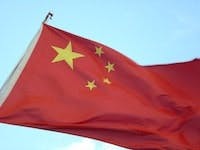GE announced the results of a consumer water reuse survey. Based on 3,000 online interviews, the water reuse survey was conducted by GE in partnership with StrategyOne and examined consumer attitudes in three countries: China, Singapore and the United States. The survey provides a comprehensive view of how residents of each country view water reuse and their willingness to support the protection and recycling of water.
The findings indicate that Chinese residents are the most supportive of water reuse, compared to their counterparts in the United States and Singapore and demonstrated the highest knowledge about water infrastructure issues.
“Population growth, rapid industrialization and accelerated urbanization are driving the need for water reuse,” said Heiner Markhoff, president and CEO—water and process technologies for GE Power & Water. “The survey, which we developed to get a better understanding of the awareness water reuse issues, revealed much stronger support for water recycling than we expected. The survey results show that the vast majority of Chinese understand the value of water reuse.”
The GE water reuse survey indicates that approximately nine out of 10 Chinese residents are concerned with the water quality and the availability of clean water for future generations. Although large industries, agriculture, corporations, utilities and power companies were seen as most responsible for contributing an “extreme amount” or “quite a bit” to the region’s water scarcity, Chinese people feel that it is important for all entities to take initiatives and responsibility to protect water resources. Approximately 90% of Chinese survey participants show a favorable attitude toward entities that choose to protect water resources or use recycled water. While the same trend was observed by those responding to the survey in Singapore, Americans did not show as strong a favorable view.
The majority of Chinese people agree that protection of water resources (95%) and water scarcity (87%) are national issues and only 61% and 45% view these as local issues. In line with these trends, the Chinese residents expect the national government to take the lead to resolve water scarcity issues and regard the decisions to protect the water resources as top priority for the government.
“China’s per capita water resources represent only one quarter of the world average. With rapid urbanization and industrialization, China will face increasing water challenges,” said Liping Lin, marketing director, greater China— water and process technologies for GE Power & Water. “Thus, as mandated in China’s 12th Five Year plans, the government is taking multiple, proactive measures to conserve water, recycle water and reduce pollution in order to build a sustainable, water-saving society.”
China also ranks the highest, as compared to Singapore and the United States, in understanding the connection between water and energy; as many as 93% of the Chinese people surveyed understand that water delivery is dependent on energy and that water is needed to generate energy. Similarly, Chinese residents believe that smart water management can help to more efficiently create and use energy, which will have a positive impact on the cost of the energy.
Source: GE


